This article is the third in the Re: Teaching and Learning series of articles that explains the staff professional development programme and how this programme is having an impact on the development of the boys at the College.

As the work continues for some PLC groups in establishing the heart of “the Why?” of their group, some PLC groups have begun the process of determining their “How?” Part of this process is goal setting with the focus upon establishing clear behaviours required to achieve these goals in mind.
“If you want to achieve your goals, don't focus on them”
Reggie Rivers states that goals are of little value if they do not lead to the identification and implementation of specific behaviours that will produce the desired goals. He states that focusing on the goal will not necessarily cause the identification and discipline to practice the needed behaviours. However, if you are focused on the behaviours needed to achieve the goal, then the goal is more likely to be achieved.
It is rather common that people are generally engaged in setting goals for increased outcomes without clearly identifying and committing to the behaviours that would create the achievement of the goal.
The backwards planning process that we are using at the College is built on identifying and practicing the behaviours of students, teachers, and leaders to gain the desired student achievement. Much of the work to be done in PLCs is the identification of the student behaviours that will cause the desired learning outcomes, and then identifying the teacher behaviours that are likely to initiate and maintain the student learning behaviours.
Students become empowered when they learn the connection between desired goals and their behaviours. For example, an assignment from the teacher is easier to invest time into completing it when the student is aware of the behaviours the assignment is designed to generate and how these behaviours connect to the goal. Learning the connections of behaviours to goals may be one of the most important learnings for the students’ future success.
In week six of term 2, each PLC group will be sharing the initial chalk-face implications of the learning that they have done in their PLC. It will be fascinating to see the practical tips and tricks that each of these areas have determined to be most beneficial to the teaching and learning environment at the College.
We are looking forward to seeing more positive outcomes for our students from the added re:focus on teaching and learning.

 Open Event Registration - Interested in enrolling?
Open Event Registration - Interested in enrolling? Employment opportunities - click if you're interested in working at McGlashan.
Employment opportunities - click if you're interested in working at McGlashan.